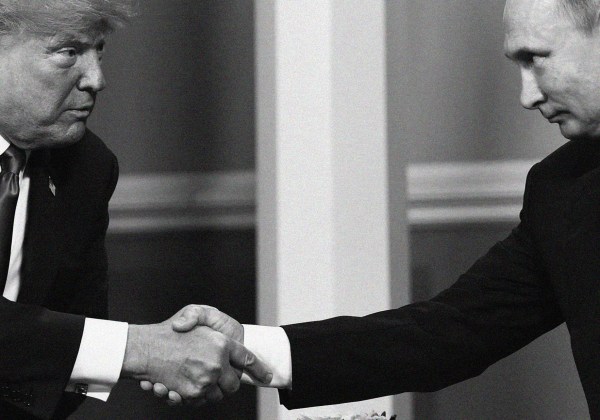During Indian Prime Minister Narendra Modi’s state visit to Washington, he and President Joe Biden signed a statement affirming “a vision of the United States and India as among the closest partners in the world—a partnership of democracies looking into the 21st century with hope, ambition, and confidence.”
Unlike many White House pronouncements, Biden based his description of U.S.-India ties more on substance than wishful thinking. The renaissance in U.S.-India ties is a bipartisan two decade-long project, perhaps the only foreign policy initiative on which Presidents George W. Bush, Barack Obama, Donald Trump, and Biden could agree.
There are many challenges, though, to fulfill the strategic reorientation and solidify U.S.-Indian ties. Upon the 1947 partition of India into two states, India and Pakistan, the Truman administration sought to align with India. The Cold War was underway, and the choice was obvious: India was a far larger country and better positioned strategically.
Jawaharlal Nehru, an anti-colonialist activist who became India’s first post-independence prime minister, turned Truman down. He preferred non-alignment, although in practice he tilted toward the Soviet Union. This left the United States with little choice other than to embrace Pakistan. It was an arranged marriage in which neither was happy. Pakistan may have preferred non-alignment, but it could not afford to be under India’s shadow. Nor could Karachi (Islamabad would not become Pakistan’s capital until decades later) afford to be defenseless against the Soviet Union. This meant Pakistan had little choice but to return the United States’ embrace, despite the lack of enthusiasm on either side.
Nevertheless, Pakistan played a supporting role in Henry Kissinger’s most famous episode, his outreach to China. Kissinger long viewed Communist China as the lesser of two evils. “The difference between [communist China] and the Russians is that if you drop some loose change, when you go to pick it up, the Russians will step on your fingers and the Chinese won’t,” he once explained to Nixon. Mao Zedong felt the same about the United States. As Mao later explained to his doctor, who was one of his top confidants, “The United States and the Soviet Union are different. The United States never occupied Chinese territory.”
It was against this backdrop that Mao floated the idea for ping-pong diplomacy, and efforts at rapprochement continued. For Kissinger, the basis of that effort too often was to throw allies under the bus. Speaking to his Chinese interlocutors, he hinted first at abandonment of Taiwan, calling U.S. support for the island a historical mistake, and he belittled the U.S. relationship with Japan. India faced special opprobrium. First during Kissinger’s secret trip and then during a follow-up October 1971 visit, Kissinger bonded with Chinese Premier Zhou Enlai over their mutual dislike of Indira Gandhi, prime minister of the world’s largest democracy. What Kissinger cynically saw as casual conversation meant to soften up an adversary, Enlai saw as an important concession, especially coming so soon after China’s aggression in the 1962 Sino-Indian War. Today, China continues to occupy a Maryland-sized chunk of India.
Nor was India the only South Asian victim of Kissinger’s ambition. On March 26, 1971, war erupted between Pakistan and Bengalis seeking independence for East Pakistan, the future Bangladesh. The violence perpetrated by Pakistan was astounding, far worse than that undertaken by the Syrian regime during the Syrian civil war or by Russia against Ukraine. Within just nine months, Pakistan was responsible for up to 3 million civilian deaths in Bangladesh, and the Pakistani Army perpetrated horrific acts of mass rape and sexual violence. Even if forgotten today in the West, it was the worst act of genocide between the Holocaust and the 1994 anti-Tutsi genocide in Rwanda. Put another way, the Bangladesh genocide caused perhaps 20 times more direct deaths than Kissinger’s green light to the carpet-bombing of Cambodia.
Kissinger might have prevented that slaughter. After all, Pakistan was an ally, and ethnic chauvinism more than military sense fueled its rampage. He chose to remain silent, however, because he believed that any criticism of Pakistan—whom China considered an ally—might spoil détente with Beijing. Kissinger had misunderstood Enlai, however. China never helped Pakistan; only the United States did.
Kissinger’s legacy in South Asia is the source of lingering distrust. Indians remember how Kissinger belittled and betrayed them, essentially for a short-term diplomatic stunt. Certainly, Kissinger’s defenders can argue that New Delhi was not a good Cold War ally from Washington’s perspective. That is certainly true, but it was nevertheless a democracy, stable, balanced, and several orders of magnitude better for the region than the People’s Republic of China, which had already established itself as the largest colonial power in Asia and distinguished itself with its volatility. Nor was Kissinger farsighted, as any assessment of the democratic and economic merits of Taiwan and India compared with China show.
Bangladesh may be secondary to India in America’s strategic calculus today, but it too should be a natural ally of the United States. With a population exceeding 170 million, Bangladesh is a demographic heavyweight and should be a strategic partner on its own merits. It’s a majority Muslim country, but its experience with Pakistan leads it to treat Islamic radicalism with disdain. The legacy of Kissinger’s blind eye, however, has derailed any such partnership, even after a half century. Kissinger’s cynicism opened a door for China to reap the rewards of a Bangladeshi partnership.
Kissinger was neither the brilliant tactician nor master strategist that his carefully cultivated image would suggest. His vanity was an Achilles’ heel, a weak spot opponents like Mao and Enlai used to maximum advantage. Ego blinded, Kissinger never recognized fully the agency of his adversaries nor the depth of their own strategies. While Kissinger preened about his strategic triumph in China, he neither considered Mao might be manipulating him nor that Mao was rooting his tactics in the “Warring States” period of Chinese history. The victory in many ways was Mao’s, as he used Kissinger to break China’s encirclement. That the United States agreed to shower him with concessions was simply icing on the cake.
The United States may ultimately take the partnership with India to the next level. It is in the interest of both countries. That Indians are so cynical about U.S. promises, rhetoric, and commitments is perhaps the most visible legacy of Kissinger in South Asia today. The problem with prioritizing the short term—as Kissinger too often did over long-term interests—is that the short term is fleeting. Kissinger was nearsighted as a time when the United States needed a visionary. That so many secretaries of state subsequently embraced Kissinger as a model for diplomacy (and in their retirement business) only compounds the long-term harm Kissinger’s real legacy represents.






Please note that we at The Dispatch hold ourselves, our work, and our commenters to a higher standard than other places on the internet. We welcome comments that foster genuine debate or discussion—including comments critical of us or our work—but responses that include ad hominem attacks on fellow Dispatch members or are intended to stoke fear and anger may be moderated.
With your membership, you only have the ability to comment on The Morning Dispatch articles. Consider upgrading to join the conversation everywhere.